Important Update for Employers: Families First Coronavirus Response Act
On March 18, the federal government passed the Families First Coronavirus Response Act (H.R. 6201), an emergency bill releasing $250 billion for direct payments to Americans on April 6 and May 18.
The package includes five main provisions meant to respond to the deepening economic crisis caused by the coronavirus outbreak.
- Free Coronavirus testing: The Families First Coronavirus Response Act ensures that all individuals, including those with private insurance, Medicare Advantage or Original Medicare, Medicaid, CHIP, VA, FEHBP and TRICARE, as well as the uninsured, will have access to tests at no cost.
- Food assistance: The U.S. House bill includes more than $1 billion to provide nutritious foods to low-income pregnant women and mothers with young children, help food banks and provide meals to seniors. It also protects students’ access to school meals in the event of school closures.
- Medicaid FMAP Rates: The U.S. House bill increases by 6.2 percent the Federal Medical Assistance Percentage (FMAP) that the federal government provides to state and territorial Medicaid programs. This temporary increase will prevent states from cutting Medicaid benefits.
- Unemployment Aid: H.R. 6201 gives states the resources and flexibility to provide unemployment benefits to laid off and furloughed workers, as well as to those workers who exhaust their allotted paid leave.
- Paid Sick and Medical Leave: The bill establishes an Emergency Paid Leave Program that replaces a significant share of lost wages so that those who take leave to avoid spreading the virus or due to illness or caregiving responsibilities can pay their bills.
Along with the payments, the bill also requires additional protections for health care workers, and a small business interruption loan program.Under the new law, employers are required to offer 10 days (80 hours) of emergency sick leave for reasons relating to COVID-19. If the sick leave is for an employee who is sick or seeking a diagnosis, the benefit must replace all the employee’s wages up to a maximum of $511 per day ($5,110 in aggregate). If an employee is caring for another individual who is sick, the benefit must replace at least two-thirds of the employee’s wages up to a maximum benefit of $200 per day ($2,000 in aggregate).
The Act also requires that small-business employees be given the right to take up to 12 weeks of job-protected family leave if the employee or family member is in coronavirus quarantine or if the school or child-care location of the employee’s child is closed due to coronavirus. In this situation, the employer must pay at least two-thirds of the employee’s usual pay, up to a maximum of $200 per day ($10,000 limit). The first 10 days may be unpaid (employee can use existing paid leave).
Payroll tax credits will be provided to employers with up to 500 employees to cover 100% of the cost of the paid sick leave for absences related to COVID-19. Tax credits will be offered to offset the employer contribution for health insurance premiums for the employee for the period of leave. Self-employed individuals will also be eligible for tax credits.
Employers with fewer than 50 employees may apply for a hardship exemption from the Secretary of Labor if they can show that the paid sick leave would jeopardize their business.
In addition to the federal emergency aid, individual states have announced various new legislation, resources, and assistance for impacted business and workers. Check your state’s Department of Labor, Department of Revenue, unemployment division, insurance division and other commerce-related websites for information specific to your state.
Many businesses are concerned about how they will survive and will want to fully understand the effect of this legislation to make payments and to seek reimbursement from the government. Note that employees that have been furloughed are still employees and qualify for payments, while employees terminated before the act comes into force will not.
All businesses must post a copy of the FFCRA requirements in a conspicuous place – the DoL will issue a model notice no later than March 25th.
Click either of the links below for more resources:
Recent
Search
Topics
- Employee Benefits (38)
- HRA (24)
- News (23)
- Insights (17)
- ICHRA (14)
- QSEHRA (13)
- Employer (11)
- Health Insurance Carrier Updates (10)
- COBRA (7)
- Individual Benefits (5)
- Benafica (4)
- Cafeteria Plan (4)
- GCHRA (4)
- Section 125 Plan (4)
- small business (4)
- Case Study (3)
- Employee (3)
- HSA (3)
- Success Story (3)
- Dental (2)
- FSA (2)
- Individual Life Insurance (2)
- Legislative Updates (2)
- Videos (2)
- Words From Our Founder (2)
- health reimbursement arrangement (2)
- Agents (1)
- Benngi (1)
- BenngiHealth (1)
- Lifestyle Savings Account (1)
- Medicare (1)
- large business (1)
